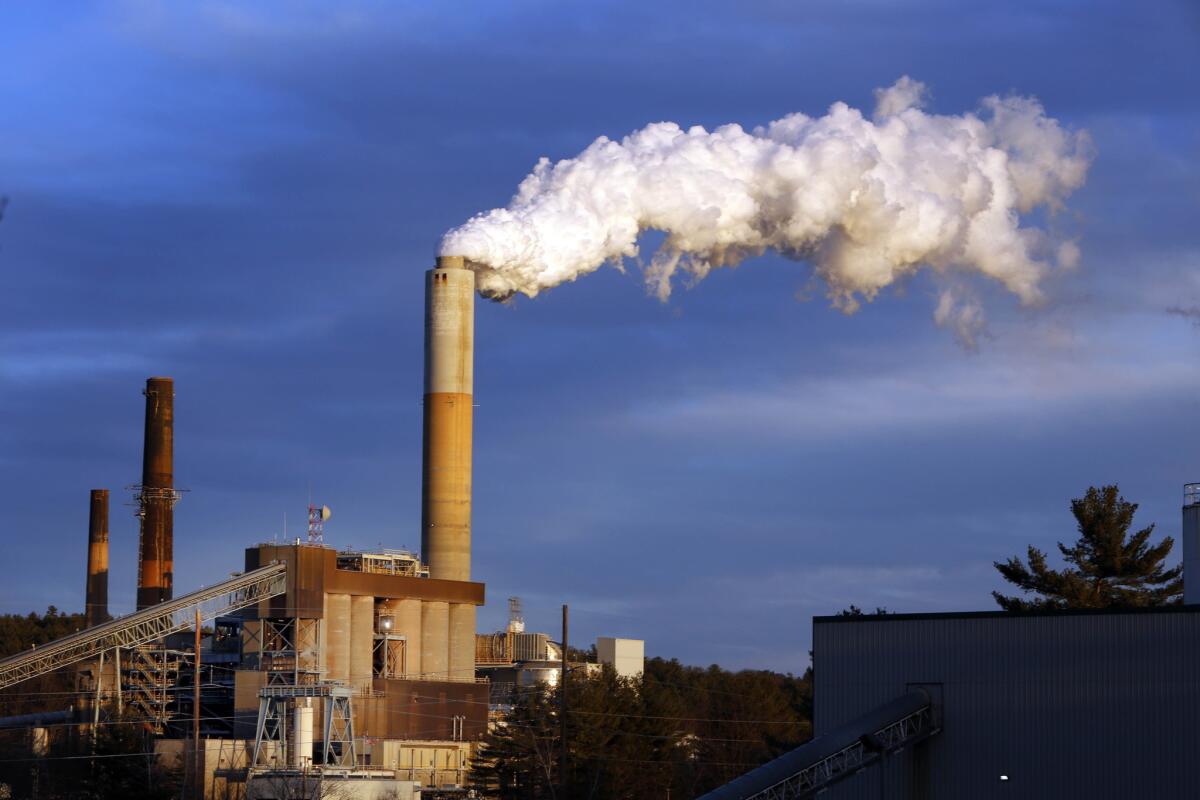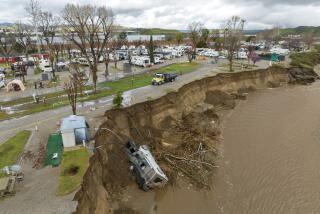EPA report cites benefits of limiting emissions, climate change

EPA report cites benefits of reducing emissions, including at power plants, and of limiting climate change. This coal-fired plant is Merrimack Station in Bow, N.H.
- Share via
Reducing the greenhouse gas emissions that cause climate change could prevent tens of thousands of deaths and hundreds of billions in economic losses in the United States, according to a new study by the Environmental Protection Agency.
The report, “Climate Change in the U.S. – Benefits of Global Action,” looks at what could happen by 2050 and by the end of the century if action is taken – and, by implication, if nothing is done - to limit the rise of the average global temperature to about 2 degrees Celsius, or 3.6 degrees Fahrenheit. That is the point past which scientists say an irreversible cycle of damage from climate change will take hold.
A wide range of physical and economic consequences could be avoided if greenhouse gas emissions were reduced, the report says. The benefits include:
- As many as 13,000 fewer deaths from poor air quality in the U.S. by 2050, and 57,000 fewer by 2100. As many as 12,000 fewer deaths from extreme temperatures in big cities by 2100.
- Agricultural losses could be reduced by as much as $3.8 billion in 2050 and $11 billion by 2100.
- As much as $18 billion in lost hours of labor could be avoided by 2050, and $110 billion by 2100. Those losses are projected to result in part from extreme heat and weather that affects outside work, particularly construction jobs.
“We’ll have more and more times in which labor is just not possible,” said Jeremy Martinich, an environmental scientist with the EPA’s climate change division who helped oversee the report. “That results in productivity losses.”
Action to stop greenhouse gases could greatly reduce the number of bridges and roads damaged or destroyed because of extreme weather, the report says. Action also could reduce the amount of electricity used, the required adjustments to rising seas, and the measures needed to ensure clean water.
Other potential benefits include saving cold-water trout streams in the Northeast, reducing by millions the number of acres lost to wildfire in the West, greatly reducing flooding in various parts of the country and preserving coral reefs in Hawaii that otherwise might be almost completely lost to global warming.
The report, written with scientists from the Massachusetts Institute of Technology, federal energy research laboratories and private consultants, is the Obama administration’s latest effort to build a case for a series of measures it has implemented or proposed to limit emissions. Those measures include restrictions on vehicle emissions and regulations limiting power-plant emissions, to be finalized later this summer.
The administration hopes to help push through a global agreement to reduce emissions at a climate conference to be held in Paris at the end of the year.
The report says it differs from other studies because it makes specific estimates of lives and dollars lost, but Martinich noted that it has limits. The consequences it describes do not, for example, forecast non-fatal diseases from declining air quality, losses in crops like fruit trees or in livestock or dairy. Nor does it estimate private property losses or damage to air quality from wildfires.
The goal was to create a relatively straightforward method for illustrating the difference between what the report called “business as usual,” which could push average temperature increases in some parts of country well beyond 10 degrees Fahrenheit by 2100, as opposed to what would happen if the world stays below the 3.6-degree Fahrenheit threshold.
“Our question was if we reduced emissions of the global community, and met that target, what would the benefits to the U.S. be?” Martinich said.
More to Read
Sign up for Essential California
The most important California stories and recommendations in your inbox every morning.
You may occasionally receive promotional content from the Los Angeles Times.














